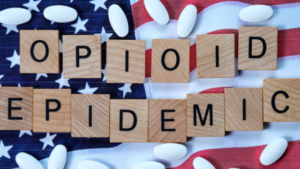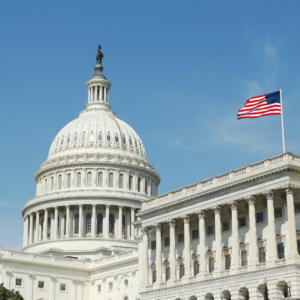by Gabriel Levitt, President, PharmacyChecker.com and Prescription Justice | Nov 30, 2018 | Drug Importation
 Earlier this month, the American Medical Association voted to support “in-person” personal drug importation from Canada so that patients can benefit from lower pharmacy costs. According to its press release, the new policy is a response to “intensified concerns that patient out-of-pocket costs for prescription drugs have hampered access to needed medications.” To say the least! A survey, published in Axios, showed that about 90 million Americans did not fill a prescription because of cost last year.
Earlier this month, the American Medical Association voted to support “in-person” personal drug importation from Canada so that patients can benefit from lower pharmacy costs. According to its press release, the new policy is a response to “intensified concerns that patient out-of-pocket costs for prescription drugs have hampered access to needed medications.” To say the least! A survey, published in Axios, showed that about 90 million Americans did not fill a prescription because of cost last year.
It’s good that the AMA is supporting Americans filling orders in-person at Canadian pharmacies, but its support is so limited… to the extent that it’s hard to tell what if any impact AMA’s recommendation could have to help more patients. Furthermore, the association appears to be confused about existing law.
First, the AMA’s support does not include Internet or mail-order pharmacy purchases from Canada. In fact, it opposes personal drug importation through Internet purchases “until patient safety can be assured.” Therefore, its proposed policy is likely to help only those who actually live near Canada. (more…)
Tagged with: American Medical Association, Customs and Border Patrol
by Gabriel Levitt, President, PharmacyChecker.com and Prescription Justice | Oct 5, 2018 | Drug Importation
As reported in Kaiser Health News, the personal drug importation cause had a little victory recently. A bill focused on the opioid crisis, H.R. 6, slated for final passage, includes language that is protective of individuals who import medicines for their own use, even illegally.
While its focus is curbing opioid abuse, H.R. 6 reforms drug importation laws that have nothing to do with opioids but empowers the FDA to stop imports of prescription drugs considered by the FDA to be misbranded (which can mean prescription drugs that have a Canadian not U.S. label). Those reforms will make it more difficult on people and business engaged in illegal, wholesale prescription drug importation. An earlier version of H.R. 6, from the House, included language that exempted imports for personal use. That language was quietly removed in a Senate version, which passed in that chamber. Then, apparently there was some protest among certain members of Congress and the language was put back in during conference – and is now in the final law.
Now I’m getting a lot of questions about the law and personal drug importation. There are several parts of law, regulation and policy very favorable to personal (but not wholesale) importation, which have yet to be compiled and addressed in one article. I endeavor to do that here. The gist is that Congress doesn’t want the FDA to unnecessarily stop Americans from buying medication from Canada and many other countries – even if it’s technically illegal. The position of Congress is clear in law if you look comprehensively and closely.
(more…)Tagged with: Congress, politics
by Gabriel Levitt, President, PharmacyChecker.com and Prescription Justice | Sep 21, 2018 | Drug Importation
 This week, our nation’s great senators passed a bill, the Opioid Crisis Response Act (OCRA), to fight back against the opioid epidemic. You think we’re stuck in partisan gridlock? Well, think again: the bill passed 99-1. This is how it goes down when Pharma is cool with a bill. Big Pharma can unite Congress like no other industry, organization or, certainly, president can. This bill passed unanimously (almost), because senators don’t want to vote against a bill that is seemingly dedicated to tackling opioid addiction. But some provisions, ones that may curtail access to safe personal drug importation, are unrelated to opioids and you can smell Big Pharma working behind the scenes.
This week, our nation’s great senators passed a bill, the Opioid Crisis Response Act (OCRA), to fight back against the opioid epidemic. You think we’re stuck in partisan gridlock? Well, think again: the bill passed 99-1. This is how it goes down when Pharma is cool with a bill. Big Pharma can unite Congress like no other industry, organization or, certainly, president can. This bill passed unanimously (almost), because senators don’t want to vote against a bill that is seemingly dedicated to tackling opioid addiction. But some provisions, ones that may curtail access to safe personal drug importation, are unrelated to opioids and you can smell Big Pharma working behind the scenes.
There’s some easily digestible intrigue relating to this bill and personal importation, but the language itself is obscure and annoyingly technical as well.
Let’s start with the intrigue.
A bill numbered H.R. 6, passed the House in late June 2018. The bill was called: “Substance Use-Disorder Prevention that Promotes Opioid Recovery and Treatment for Patients and Communities Act or the SUPPORT for Patients and Communities Act.” [To find it via the link provided, click the bill text, and then use the dropdown to find the version of the bill on June 28th, 2018]. That earlier H.R. 6 included the following language:
“(c) DEFINITION. – For purposes of subparagraph (B), the term ‘pattern of importing or offering for import articles of drug’ means importing or offering for import articles of drug describes in subclause (I) or (ii) of subparagraph (B)(ii) in an amount, frequency, or dosage that is inconsistent with personal or household use by the importer.”
That language applies to both the bill itself and the existing statute, which further complicates things, but the gist is simple:
The author of that language wanted to make clear that this legislation should not affect small, personal or household quantity medication imports.
After the bill passed, 396-14, it went to the Senate, specifically the Senate Committee on Health, Education, Labor and Pensions (HELP), led by the chair, Senator Lamar Alexander (R-TN) and ranking member, Senator Pat Murray (D-WA). In HELP, I believe that Senator Alexander crossed out H.R. 6 and added a whole new bill in the form of a substitute amendment. That substitute amendment, without vote or a committee conference report, removed the language above that was protective of personal imports.
Go to the bill H.R. 6. [After clicking the link, you’ll see “AMENDMENT” – “Strike all after the enacting clause and insert the following.” That’s what I mean by replacing the entire bill with a new one; one that contains new language and omits other language.]
This backroom editing and revising of bills often undermine the democratic process but is sadly commonplace in Congress. Large industry trade associations know how to play the game to make sure those revisions and edits work in their favor. There is no better player than the Pharmaceutical Researchers and Manufacturers of America (PhRMA) and their allies.
But what the hell does that definition above mean and pertain to anyway?
It relates to something called debarment. Under federal law, specifically Section 301 (cc) of the Food, Drug and Cosmetics Act, Title 21 U.S. Code 331, a person who is debarred cannot be involved in certain work relating to FDA-regulated industries.
There is mandatory and permissive debarment. We’re just concerned with permissive debarment here. Current law mostly calls for debarment of individuals who have committed felonies and misdemeanors – crimes. HR 6 amends this language by adding to that list:
“[a] person [who] has engaged in a pattern of importing or offering for import…adulterated or misbranded drugs”
And by adding the bolded text as you see below to define a Prohibited Act:”
“The importing or offering for import into the United States of an article of food or a drug by, with the assistance of, or at the direction of, a person debarred under section 335a(b)(3) of this title”
Let’s say you buy your cholesterol and asthma medication from Canada on a regular basis.
That’s a pattern. Under federal law, because of the Canadian label, the medications are misbranded, even if they are the exact same drug as the one sold here. In theory, this patient and/or a person who has helped that patient can be debarred from doing so.
There you have it. Now you see why that original language was in there to protect such people who import medications that are consistent with personal or household use by the importer – not resale.
Synthetic Trafficking and Overdose Prevention Act (STOP)
Another part of this bill that threatens importation are the provisions taken from the Synthetic Trafficking and Overdose Prevention Act (STOP Act). The STOP Act’s stated goal is to stop illegal imports of fentanyl and other drugs. The STOP Act is focused on making changes to our system of regulating international mail shipments. Small import packages come through international mail facilities without tracking in the way that FedEx, UPS, DHL packages are required by law to be tracked. If you order a drug from a Canadian pharmacy, the U.S. Postal Service delivers it to you. When Chinese fentanyl ingredient traders want to get stuff into the U.S., it also goes through the USPS via international mail facilities. So, the STOP Act creates new rules for the USPS to know what’s coming in with the goal of stopping illegal drugs.
The STOP Act can be great because it will be harder for opioid dealers in the U.S. to import the ingredients or finished opioid drugs that wreak havoc on our people. It’s potentially bad because the FDA very well might use this to stop “other drugs,” such as personal imports of lower-cost medicines, because it will be easier to do with the advanced data about incoming mail packages required under the new regulations. It’s certainly concerning because the drug companies and their allies have invested time and money to highlight, as a negative, that Americans receive their lower-cost medications via USPS.
Creating and Restoring Equal Access To Equivalent Samples Act (CREATES) vs. Higher Medicare Drug Prices
Now that different versions of the bill H.R. 6 have passed the House and Senate, the two chambers meet in conferences to create one version for the president to sign. To add insult to injury, behind the scenes, Pharma is trying to add language that would erase new discounts in Medicare Part D slated for 2019. On the other hand, drug price advocates are trying to get language in there to push through the provisions of the CREATES Act (Creating and Restoring Equal Access To Equivalent Samples Act).
Simply put, now, brand drug companies sometimes make it hard for generic drug companies to acquire the pharmaceutical samples they need to create a lower-cost generic. If CREATES goes through, generic drug companies could more easily obtain these samples. That would facilitate faster generic availability and save patients and taxpayers money: about $3-4 billion. The just outcome is Pharma losing its pitch to ditch the Medicare savings and then CREATES makes it in the bill! I’ve heard talk about horse trade.
What does this bill do to curtail the opioid epidemic? It will help, but it’s not even close to what is needed. I’m not going there at the moment, but here’s Politico’s take. Since there’s some good stuff in there, Congress feels obligated to go for it; so here we are. As I’ve shown you, Pharma’s many allies in Congress have used this bill to sneak in stuff that is unrelated to opioid addiction that Pharma wants – including taking a jab at importation and lower drug prices in other countries.
Tagged with: Opioid Crisis Reduction Act, opioids, politics, Synthetics Trafficking and Opioid Prevention Act
by Gabriel Levitt, President, PharmacyChecker.com and Prescription Justice | Aug 24, 2018 | Drug Importation
 Generic drugs often become available earlier in other countries and that means greater affordability. Generally, it’s a violation of a drug companies’ intellectual property rights when a company sells a generic in a country before the patent has expired. But what happens if you import a generic version of a drug, one that is lawfully-made and sold in a country where it is available but still on patent here, to fill a prescription? Are you committing an intellectual property violation?
Generic drugs often become available earlier in other countries and that means greater affordability. Generally, it’s a violation of a drug companies’ intellectual property rights when a company sells a generic in a country before the patent has expired. But what happens if you import a generic version of a drug, one that is lawfully-made and sold in a country where it is available but still on patent here, to fill a prescription? Are you committing an intellectual property violation?
According to a side agreement (of the General Agreement on Tariffs and Trade) among countries party to the World Trade Organization, called TRIPS (Trade-Related Aspects of Intellectual Property Rights), countries are not obligated to enforce IP laws for small importations of goods, which include pharmaceuticals.
You can find this in Part III, Enforcement of Intellectual Property Rights, Article 60:
De Minimis Imports
Members may exclude from the application of the above provisions small quantities of goods of a non-commercial nature contained in travelers’ personal luggage or sent in small consignments.
The “above provisions” refer to enforcement actions against intellectual property violations that involve goods crossing borders (in person, by plane, sea, through the mail, etc.). If you read closely, it includes the word “may.” That means, in theory, you could be accused of an IP violation, but I know of not a single instance of that happening to an individual importing a medicine for personal use.
What is clear is that there’s general agreement (no pun intended) that individuals should not be subject to IP enforcement actions for importing a product for personal use. When it comes to a life-saving medicine, this seems like common decency – even natural law.
Tagged with: article 60, intellectual property rights, patent, TRIPS, WTO
by Gabriel Levitt, President, PharmacyChecker.com and Prescription Justice | Aug 1, 2018 | Drug Importation
 Here’s a real story about online opioid drug dealers getting indicted and how pharma front groups conflate the opioid crisis with prescription drug importation. I write “real” to juxtapose rogue online pharmacies—that illegally sell addictive drugs—and safe international online pharmacies that don’t sell addictive drugs at all.
Here’s a real story about online opioid drug dealers getting indicted and how pharma front groups conflate the opioid crisis with prescription drug importation. I write “real” to juxtapose rogue online pharmacies—that illegally sell addictive drugs—and safe international online pharmacies that don’t sell addictive drugs at all.
On July 9th, the U.S. Department of Justice for the Southern State of New York announced the indictment of Evelin Bracy and Jorge Rodriguez Lopez for illegal distribution of controlled drugs, including an analog of the opioid pharmaceutical Fentanyl – called U-47700. They are also accused of selling these drugs on the Internet from what the DOJ refers to as a website “purporting to be an online pharmacy.” The indicted parties were also alleged to have sold drugs under pharmaceutical names, oxycodone and alprazolam, that were found to have other ingredients, implying that the products were counterfeit. These counts can technically land a person in jail for 40 years.
If the allegations are true, then we’re dealing with bona fide drug pushers. The Partnership for Safe Medicines (PSM), a Pharma-funded non-profit group that seeks to conflate such drug dealing and counterfeiting with pharmacies in other countries that sell affordable prescription medicines to people here in the U.S. PSM is keeping a web diary of law enforcement busts that help stop the deadly fentanyl trade, which is taking the lives of thousands of Americans each year. We applaud law enforcement for disrupting these opioid dealing operations and bringing their orchestrators to justice.
(more…)
Tagged with: Enforcement, opioids
by Gabriel Levitt, President, PharmacyChecker.com and Prescription Justice | Jul 20, 2018 | Drug Importation

Azar is proposing a discussion about allowing imports of single-source drugs to lower costs
Yesterday, Health and Human Services Secretary Alex Azar announced that he was tasking FDA Commissioner Scott Gottlieb with forming a working group to explore how drug importation could be used to lower prices. See Gottlieb’s remarks on the proposal.
The crux of the proposal is very narrow. Azar is considering allowing imports of foreign versions of off-patent medicines that only one manufacturer (also referred to as “single-source” drugs) is selling in the U.S. market. That would be a drug without any competition where the company with the marketing license jacks the price. Keep in mind that he has simply called for a working group to discuss it.
I’m getting asked a lot of questions about this proposal and realize that many people, including well-informed journalists and policy professionals, don’t really get this.
People who already import medicines, through buying them online or carrying them home from Canada to save money may also be confused!
So, to help any and all understand what HHS and the FDA are considering when it comes to drug importation, below are some important takeaways. My general take, as noted in the Washington Post, is that it’s a step in the right direction (if it goes forward), and it could help educate the public about greater potential benefits to larger scale importation.
- This is not legalizing buying cheaper, FDA-approved meds from retail pharmacies in Canada online or otherwise.
- Millions of Americans already benefit from importing lower-cost, safe and effective medicines for personal use. They do this despite the existing federal prohibitions and scare tactics employed by industry-funded groups to deter such purchases. To do so safely, they stick to credentialed online pharmacies, such as those verified by PharmacyChecker.com. Today, Roger Bate, who is affiliated with the American Enterprise Institute, wrote: “All the FDA has to do is allow Pharmacy Checker to do its job and tell the American people about it.”
(more…)
Tagged with: Alex Azar, politics, Roger Bate, Scott Gottlieb
 Earlier this month, the American Medical Association voted to support “in-person” personal drug importation from Canada so that patients can benefit from lower pharmacy costs. According to its press release, the new policy is a response to “intensified concerns that patient out-of-pocket costs for prescription drugs have hampered access to needed medications.” To say the least! A survey, published in Axios, showed that about 90 million Americans did not fill a prescription because of cost last year.
Earlier this month, the American Medical Association voted to support “in-person” personal drug importation from Canada so that patients can benefit from lower pharmacy costs. According to its press release, the new policy is a response to “intensified concerns that patient out-of-pocket costs for prescription drugs have hampered access to needed medications.” To say the least! A survey, published in Axios, showed that about 90 million Americans did not fill a prescription because of cost last year.



 Generic drugs often become available earlier in other countries and that means greater affordability. Generally, it’s a violation of a drug companies’ intellectual property rights when a company sells a generic in a country before the patent has expired. But what happens if you import a generic version of a drug, one that is lawfully-made and sold in a country where it is available but still on patent here, to fill a prescription? Are you committing an intellectual property violation?
Generic drugs often become available earlier in other countries and that means greater affordability. Generally, it’s a violation of a drug companies’ intellectual property rights when a company sells a generic in a country before the patent has expired. But what happens if you import a generic version of a drug, one that is lawfully-made and sold in a country where it is available but still on patent here, to fill a prescription? Are you committing an intellectual property violation? Here’s a real story about online opioid drug dealers getting indicted and how pharma front groups conflate the opioid crisis with prescription drug importation. I write “real” to juxtapose rogue online pharmacies—that illegally sell addictive drugs—and safe international online pharmacies that don’t sell addictive drugs at all.
Here’s a real story about online opioid drug dealers getting indicted and how pharma front groups conflate the opioid crisis with prescription drug importation. I write “real” to juxtapose rogue online pharmacies—that illegally sell addictive drugs—and safe international online pharmacies that don’t sell addictive drugs at all.
